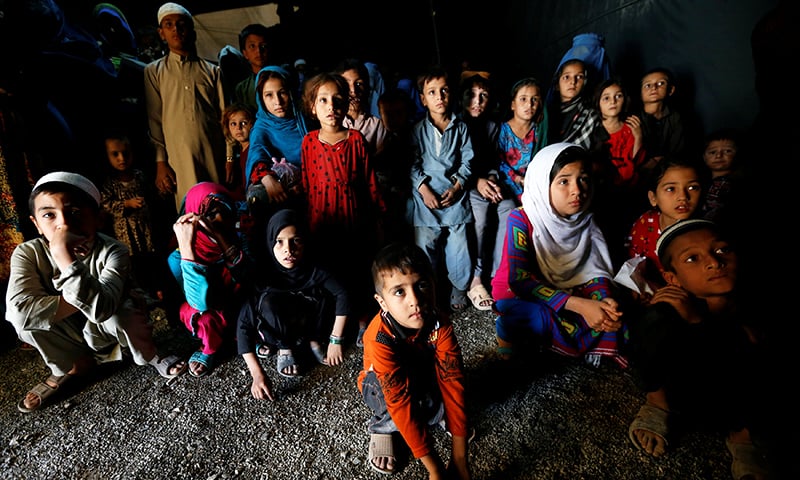LONDON: Pakistan hosts the third highest number of refugees in the world, according to a report released by rights group Amnesty International.
Home to 1.6 million refugees, Pakistan is third in line behind Jordan (over 2.7m refugees) and Turkey (over 2.5m refugees).
In a report on the plight faced by the world's 21 million refugees, the London-based human rights body said that 10 countries accounting for 2.5 per cent of world's GDP host more than half the world's refugees and slammed what it called the selfishness of wealthy nations. Many of the world's wealthiest nations “host the fewest and do the least”, it said.
Amnesty lamented that countries immediately neighbouring crisis zones bear the brunt of the global refugee problem.
56pc of refugees are being sheltered in 10 countries, according to the report, in which Amnesty proposed a solution whereby the world's countries find a home for 10pc of the planet's refugees every year.
"A small number of countries have been left to do far too much just because they are neighbours to a crisis," said Amnesty secretary general Salil Shetty, presenting the report entitled "Tackling the global refugee crisis: from shirking to sharing responsibility".
“It is not simply a matter of sending aid money. Rich countries cannot pay to keep people 'over there',” it said.
The “self-interest” of such countries meant the international refugee crisis was set to get worse, not better, Amnesty claimed.
“If every one of the wealthiest countries in the world were to take in refugees in proportion to their size, wealth and unemployment rate, finding a home for more of the world's refugees would be an eminently solvable challenge,” said Shetty.
"That situation is inherently unsustainable, exposing the millions fleeing war and persecution in countries like Syria, South Sudan, Afghanistan, and Iraq to intolerable misery and suffering.
"It is time for leaders to enter into a serious, constructive debate about how our societies are going to help people forced to leave their homes by war and persecution."
Top 10 countries hosting refugees worldwide
- Jordan: over 2.7m refugees
- Turkey: over 2.5m refugees
- Pakistan: 1.6m refugees
- Lebanon: over 1.5m refugees
- Iran: 979,400 refugees
- Ethiopia: 736,100 refugees
- Kenya: 553,900 refugees
- Uganda: 477,200 refugees
- Democratic Republic of Congo: 383,100 refugees
- Chad: 369,500 refugees
The statistics are based on figures from the United Nations High Commissioner for Refugees.













































